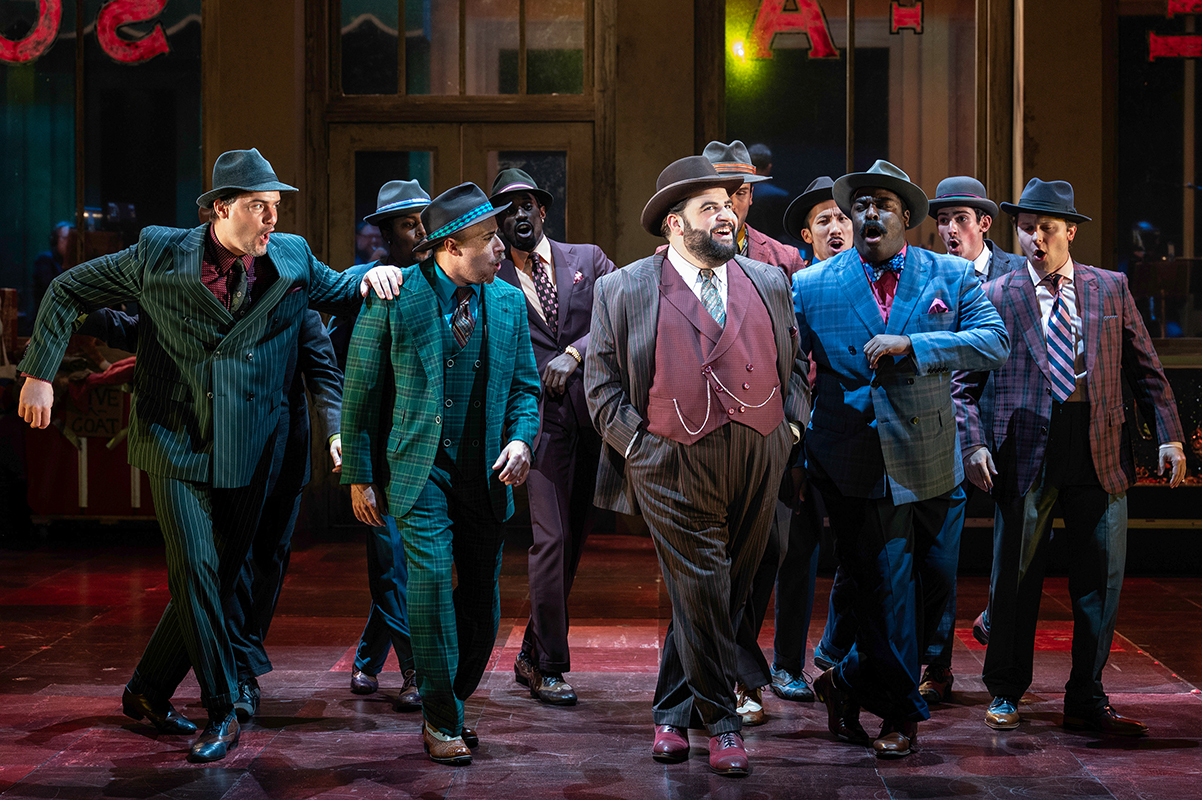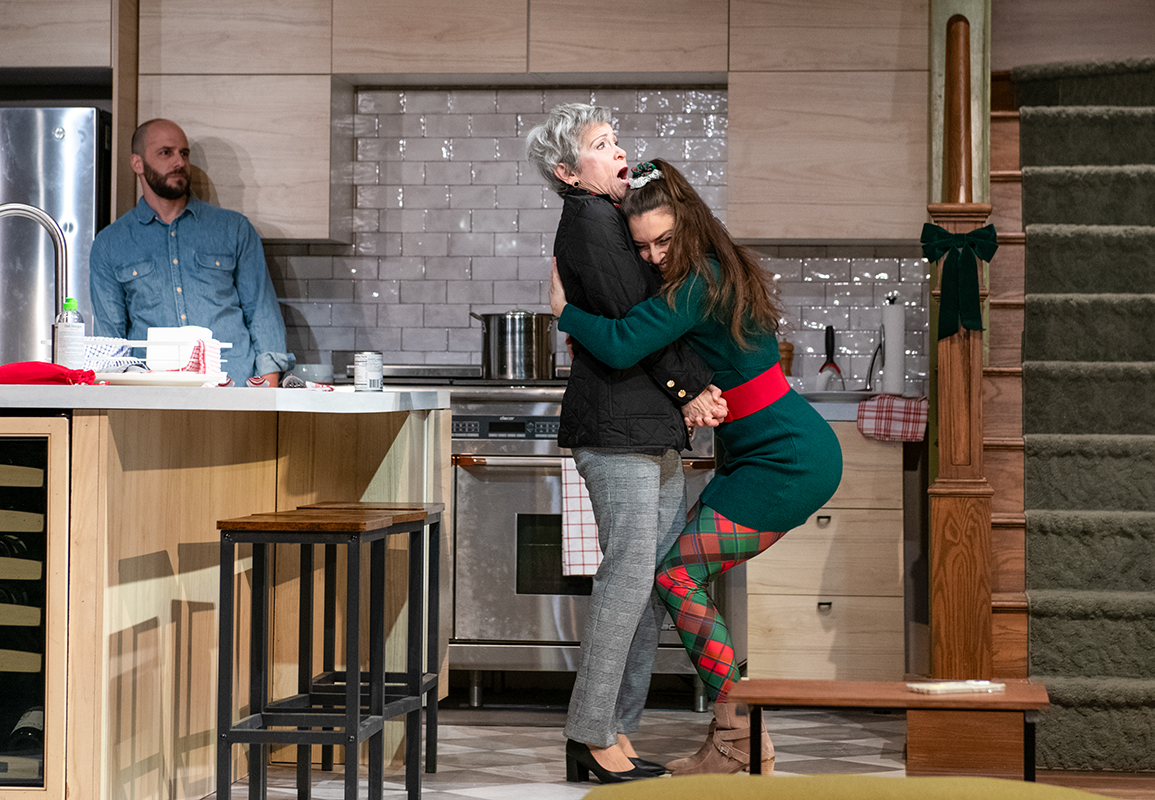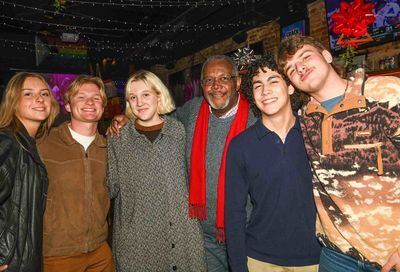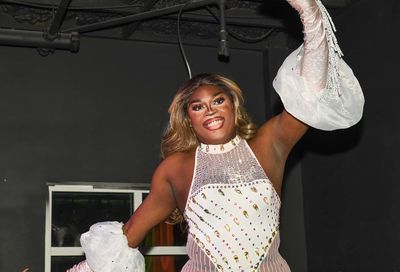The Mother Play Review: Studio Finds the Humor in Hurt
Growing up is hard to do for two queer siblings in Studio’s moving and funny "The Mother Play: A Play in Five Evictions."

Years ago, on a plane, I met a woman who mentioned she was the mother of three gay sons. She sounded well-adjusted to this fact of her life, and spoke lovingly of all her children, all grown.
Without her mentioning it, I understood that, however well she may have accepted or adjusted to her gay kids, at some point, somebody else, relatives or strangers, probably believed she had some explaining to do. They probably blamed her, for something, because she’s the mother.
Paula Vogel’s eloquent The Mother Play: A Play in Five Evictions, now at Studio Theatre, evokes memories of that well-adjusted mom with its incisive depiction of a sorely maladjusted mother of two queer siblings, who have to spend their lives adjusting to their mama’s sundry moods and episodes.
The play’s matriarch, Phyllis Herman, brilliantly portrayed by Kate Eastwood Norris, does not always, or even usually, speak lovingly of both her children, Carl (Stanley Bahorek) and Martha (Zoe Mann). Mama plays favorites, clearly doting on Carl, and lashing Martha, two years her brother’s junior, with constant put-downs.
Phyllis also has no kind words for their father, who “walked out on us,” she often reminds them. His absence only exacerbates her insistent dread of being blamed for everything, simply because she’s the mother.
But, as Carl and Martha would attest, raging alcoholic Phyllis is a certified mess. That means she’s also an entertaining character to be around, for us, especially as Norris slips completely into her skin, revealing amidst the reluctant mom’s vanity and good-humored bravado a deeply scared, unhappy person.
Dead set on always presenting a proper, put-together face to the outside world, Phyllis drops that mask utterly at home, where she can be a mean, insulting, self-pitying drunk. Or the booze and her favorite tunes on the radio can have her feeling upbeat and gleefully concocting a hilarious revenge plot against their landlord.
However, sweet revenge leads to the family’s first eviction, from a roach and rat-infested sub-basement custodian’s apartment in Adelphi, Maryland. Phyllis’ abject struggle to keep a roof over their heads serves as the thread pulling this family through D.C. native Vogel’s heartfelt, semi-autobiographical dramedy.
A Pulitzer winner for How I Learned to Drive, Vogel closely reflects aspects of her own family and upbringing in these characters, as the Herman family bounces around the DMV, from home to home, over the course of forty years.
Along the way, the writer posts tender, sometimes glaring, signs of the toll Phyllis’ kids pay for their mama’s faults and foibles. Carl announcing in one scene the sad end to his and Martha’s childhood innocence perhaps is too glaring a sign.
Enduring a life of perpetual instability, the struggle for Carl and Martha is to withstand their mother while still becoming the person they’re each going to be. In Carl’s case, that’s a bright, witty gay man who eventually leaves for college, coming of age in the Disco Era.
Accordingly, Bahorek portrays Carl with the irrepressible spirit of the favored gay son. By contrast, Martha, who’s lesbian, has to wrap herself in armor just to be able to take her mother’s relentless criticism, and Mann’s performance captures the girl’s, then woman’s, aching need to protect herself.
Ever-dutiful, Martha wants to embrace, and be embraced by, her mother, but that form of love isn’t forthcoming. So, Martha is the dam that won’t break — until she does. In a powerful monologue, confidently delivered by Mann, Martha sums up years of frustration and futility in her relationship with Phyllis.
Led by Margot Bordelon’s assured direction, each angle of these complicated relationships feels well-defined, as does their passage through decades of time.
Working seamlessly with the set and sound design, Shawn Boyle’s vivid projection designs provide character, atmosphere, and/or exposition, contributing abundantly to the production’s cinematic style. Danielle Preston’s era-spanning costume design also helps keep us clued in, as the play pulses through years of familial angst and awkwardness.
Somehow, a resonant picture of loneliness also emerges in Norris’ indelible take on this mother, who rightfully deserves her share of blame for making her children’s lives exceedingly difficult, and credit for raising kids sharp enough to find themselves anyway.
The Mother Play (★★★★☆) runs through Jan. 4, at Studio Theatre, 1501 14th St. NW, with a Pride Night performance on Dec. 12. Tickets are $55 to $95, with discount options available. Call 202-332-3300, or visit StudioTheatre.org.
Support Metro Weekly’s Journalism
These are challenging times for news organizations. And yet it’s crucial we stay active and provide vital resources and information to both our local readers and the world. So won’t you please take a moment and consider supporting Metro Weekly with a membership? For as little as $5 a month, you can help ensure Metro Weekly magazine and MetroWeekly.com remain free, viable resources as we provide the best, most diverse, culturally-resonant LGBTQ coverage in both the D.C. region and around the world. Memberships come with exclusive perks and discounts, your own personal digital delivery of each week’s magazine (and an archive), access to our Member's Lounge when it launches this fall, and exclusive members-only items like Metro Weekly Membership Mugs and Tote Bags! Check out all our membership levels here and please join us today!


























You must be logged in to post a comment.